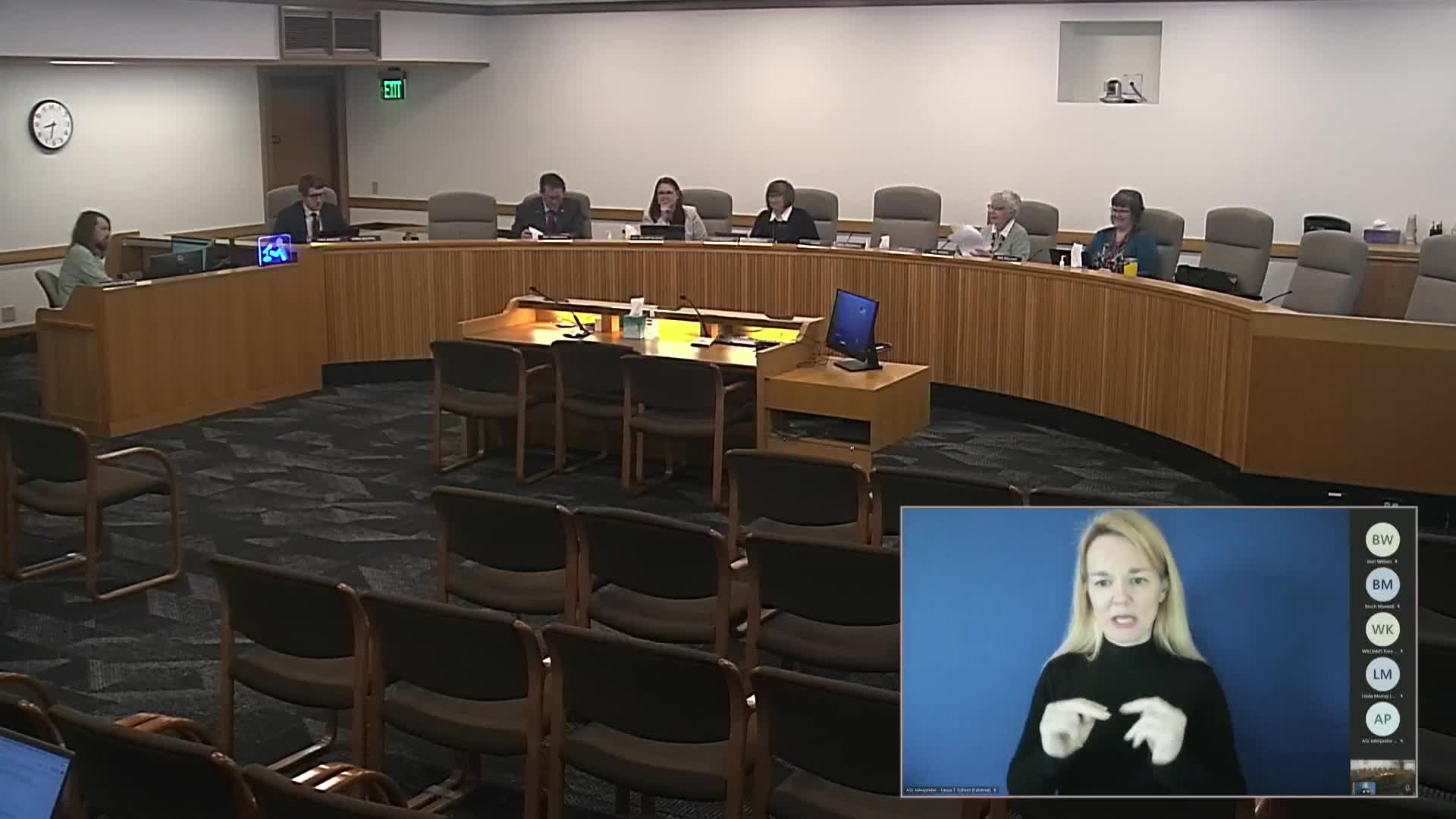Committee hears plan to study statewide bargaining for licensed educators; task-force report prompted bill
February 17, 2025 | Education, Senate, Committees, Legislative, Oregon
This article was created by AI summarizing key points discussed. AI makes mistakes, so for full details and context, please refer to the video of the full meeting. Please report any errors so we can fix them. Report an error »

Senate Bill 313 would require the Oregon Department of Administrative Services (DAS) to develop a plan for establishing a statewide collective bargaining framework for licensed educators that pairs a central table for salary and benefits with local tables for nonmonetary working conditions.
Michael Dembrow, former chair of the Senate Education Committee and sponsor of SB 313, told the committee the idea grew from a task force created by 2023 legislation that met 16 times between August 2023 and September 2024 to study statewide educator salary schedules and bargaining models. Dembrow said the task force reviewed state and international models, including AFSCME's two-tier (central/local) approach and the system used for educators in Ontario, Canada, and concluded that a central salary-and-benefits table paired with local tables for working conditions deserved further development.
Dembrow said the proposal is intended to address a long-standing disconnection between legislative appropriations and local collective bargaining across Oregon's roughly 197 school districts, arguing a central negotiation over salary and benefits could improve predictability and equity while leaving local discretion on other working conditions.
Laurie Satinspiel (testifying for the Oregon School Boards Association) and Linda Marie (business manager, North Marion School District) described mixed local reactions but said a careful planning process is warranted. Satinspiel told the committee the task force surfaced many questions and that some local board members and superintendents who learned from other states' experiences were open to further study. Linda Marie said school business officials are concerned about ensuring funding to support any statewide salary schedule and said aligning the bargaining and budget timelines would be beneficial.
SB 313 directs DAS to convene an advisory group, develop an implementation plan that contemplates a central table and local tables, and report to the legislature with implementation options in December 2026 and December 2027. The bill applies to licensed educators and leaves work on classified-employee classification analysis for later action, which task-force members said is a prerequisite before contemplating statewide bargaining for classified staff.
Committee members asked how regional differences (cost of living, district budgets, benefit arrangements) would be handled; witnesses said regional variation is one of the topics the planning process would address and noted that most districts use the same statewide health insurance pool, easing some uniformity for benefits. The committee closed the SB 313 hearing without a vote and referred the bill for further work.
Michael Dembrow, former chair of the Senate Education Committee and sponsor of SB 313, told the committee the idea grew from a task force created by 2023 legislation that met 16 times between August 2023 and September 2024 to study statewide educator salary schedules and bargaining models. Dembrow said the task force reviewed state and international models, including AFSCME's two-tier (central/local) approach and the system used for educators in Ontario, Canada, and concluded that a central salary-and-benefits table paired with local tables for working conditions deserved further development.
Dembrow said the proposal is intended to address a long-standing disconnection between legislative appropriations and local collective bargaining across Oregon's roughly 197 school districts, arguing a central negotiation over salary and benefits could improve predictability and equity while leaving local discretion on other working conditions.
Laurie Satinspiel (testifying for the Oregon School Boards Association) and Linda Marie (business manager, North Marion School District) described mixed local reactions but said a careful planning process is warranted. Satinspiel told the committee the task force surfaced many questions and that some local board members and superintendents who learned from other states' experiences were open to further study. Linda Marie said school business officials are concerned about ensuring funding to support any statewide salary schedule and said aligning the bargaining and budget timelines would be beneficial.
SB 313 directs DAS to convene an advisory group, develop an implementation plan that contemplates a central table and local tables, and report to the legislature with implementation options in December 2026 and December 2027. The bill applies to licensed educators and leaves work on classified-employee classification analysis for later action, which task-force members said is a prerequisite before contemplating statewide bargaining for classified staff.
Committee members asked how regional differences (cost of living, district budgets, benefit arrangements) would be handled; witnesses said regional variation is one of the topics the planning process would address and noted that most districts use the same statewide health insurance pool, easing some uniformity for benefits. The committee closed the SB 313 hearing without a vote and referred the bill for further work.
View full meeting
This article is based on a recent meeting—watch the full video and explore the complete transcript for deeper insights into the discussion.
View full meeting
